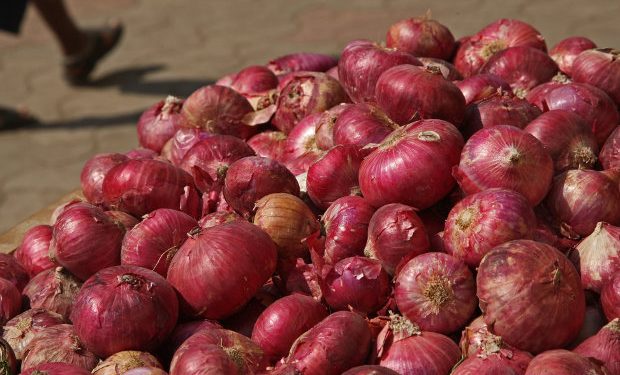Bhubaneswar: In a bid to check the spiraling price rise of onion, the state government Friday decided to strengthen enforcement activities and stop hoarding of the kitchen essential.
Briefing the media after presiding over a high-level review meeting at the Secretariat here, Food Supplies and Consumer Welfare Minister Surya Narayan Patro said that the rate of onion in the mandis in Nasik, Maharashtra, (the highest onion producing district in the country), has gone up to Rs 12-Rs 13 per kg due to torrential rain there during the last two weeks.
However, the wholesale price of the onion per kg in Odisha is around Rs 17 or Rs 18 per kg due to higher transportation charges, he said. The retail price of the kitchen essential has increased to Rs 22 per kg.
The minister said stern actions would be taken against people selling onion in the black market and hoarding of the essential item illegally. The district Collectors have been asked to monitor the sale of onion in the local market and strengthen the enforcement activities to check hoarding and selling of onion at high prices in violation of the Essential Commodities Act (ESA) of 1955, he pointed out.
As per norms, traders in Cuttack cannot stock over 500 quintals of onion, while the wholesale traders in Bhubaneswar, Puri, Berhampur, Sambalpur and Rourkela can stock up to 350 quintals of onion. For other remaining areas the stock limit is 150 quintals.
He further said that the price of onion would come down as Andhra Pradesh starts supplying the vegetable in the next two weeks.
As new crop of onion comes to the market it will facilitate lower the prices. The sudden increase in price will also be brought under control as the supply from the onion producing state is ensured free movement to Odisha, sources said. The minister said he will hold another meeting July 9, 2018 to sort out the bottlenecks in the supply chain of onion and also ensure that it is available at reasonable prices.
Guv Vs Govt
The Supreme Court ruling on 8 April declaring as erroneous and illegal the action of Tamil Nadu Governor RN Ravi,...
Read more





































